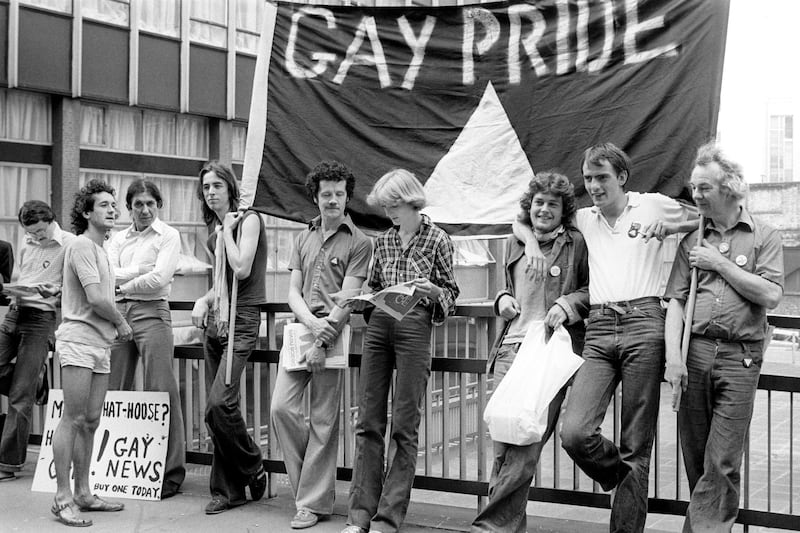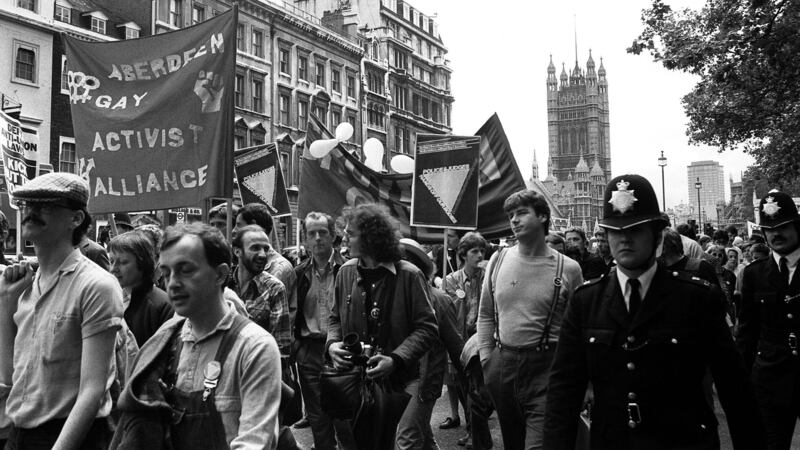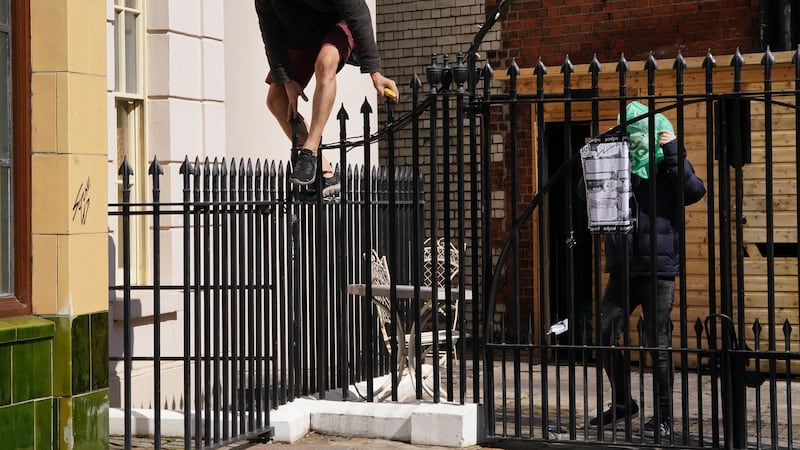It is officially 50 years since the 1967 Sexual Offences Act was passed, and people across the UK have been celebrating the bill’s groundbreaking impact on British society.
The Act is famous for decriminalising homosexuality: the first time being gay in Britain was not, in itself, a crime.
Here’s everything you need to know about what the changes meant for British society.
What were the rules beforehand?
Before 1967, people engaging in homosexual acts could be prosecuted and even imprisoned for their sexuality.
The social stigma that came of being gay prompted some to volunteer for or be made to do traumatic aversion therapies: designed to “cure” a person of their homosexuality through a series of painful or uncomfortable routines.
Men were not allowed to share beds, have sex with one another, commit “gross indecency” – that is, any other sexual act beyond sex, including touching and kissing – or promote homosexual behaviour.
The law specifically forbade the act of homosexual sex between two men – termed “buggery” – but gay women were still subjected to prejudice and socially stigmatised.
What did the 1967 law do?

Contrary to popular belief, the Act did not meaningfully legalise homosexuality between men: it merely decriminalised homosexual acts under some, very particular, circumstances.
The change to the law meant it was no longer a criminal offence for two consenting adult men to have sex, provided they were over the age of 21 and did not commit the act in a public lavatory.
It still remained a criminal offence to have homosexual sex if more than two people were present, and the charge of gross indecency could still be enforced under the understanding that certain behaviours remained “unnatural offences”.
Convictions for gross indecency continued to be enforced after 1967, sometimes for merely setting up two people on a date.
What happened afterwards
As recently as 2012, surveys suggested over half the British public did not approve of same-sex relationships. #sexualoffencesact pic.twitter.com/5RTlWwz4d7
— Ian Jones (@ian_a_jones) July 27, 2017
Public outcry and continuing prejudice meant that anti-homosexual legislation continued to be doggedly enforced for many years after the Act was passed.
Twenty-one years later, Margaret Thatcher’s government passed Section 28 of the Local Government Act 1988, which banned the promotion of homosexuality in schools or via publications from local authorities.
It took until 1994 for the age of consent between two men to be lowered to 18, and until 2000 for it to be lowered to 16 – when all gay people finally received parity with heterosexuals.
Attitudes have proved much harder to overcome. Research by the British Social Attitudes Survey showed that as recently as 2012, half the British public still did not approve of same-sex relationships.
How have people been celebrating the anniversary?
Although the UK has come a long way since 1967, there’s little doubt the 1967 Act marked the beginning of a fundamental shift in British society.
People have been celebrating on Twitter, using the hashtag #50yearslegal.
Rainbow cakes made tasty breakfasts
Today we are celebrating 50 years since the 1967 Sexual Offences Act passed with a rainbow breakfast! 🌈#LB50 #pride pic.twitter.com/zXd5csiW3k
— Virago Press (@ViragoBooks) July 27, 2017
Rainbow fruit 🍏🍎🍐🍊🍋🍇🍉🍌🍓🍈🍑🍍 #ReadLGBTQ #LB50 pic.twitter.com/XN0MTqVMnw
— Louise Newton (@NewtonLou) July 27, 2017
A balanced meal to celebrate the #LB50 Rainbow breakfast #ReadLGBTQ Thanks @domwakeford! pic.twitter.com/XxNuZHFfBK
— David Bamford (@bamford_d) July 27, 2017
Employees at the publisher Little, Brown Book Group celebrated with a beautiful selection of rainbow-coloured foods.
Gladstone, the Treasury cat wore his special bow tie
And this stunner of Sir Ian McKellen made the rounds again
50 years of gay being legal today! 🌈 #50yearslegal pic.twitter.com/rno9Jy1Ktp
— Chris Harris (@thechris_harris) July 27, 2017
Here’s to greater equality for all.








